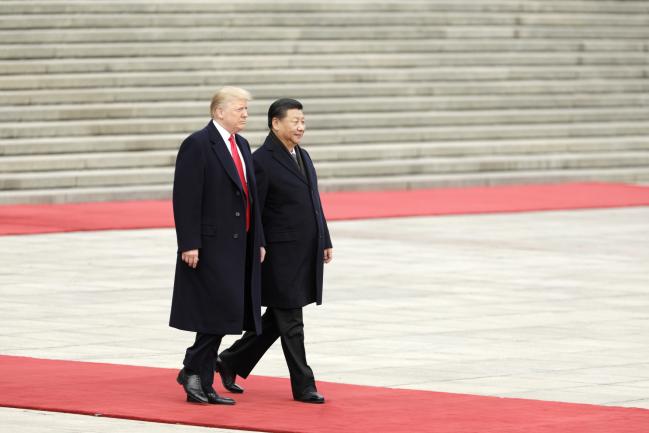(Bloomberg) -- Sign up for Next China, a weekly dispatch on where the country stands now and where it's going next.
The next round of China-U.S. trade talks will get under way in Beijing this week with significant issues still unresolved but with enforcement mechanisms “close to done,” U.S. Treasury Secretary Steven Mnuchin said.
“There are still some important issues. We still have more work to do,” Mnuchin said in an interview on Fox Business. “If we get to a completed agreement it will have real enforcement provisions,” adding that those provisions are “close to done” and only need “a little bit of fine tuning.”
While both sides are eager to reach an agreement, the possibility remains that President Donald Trump would walk away from the negotiating table with China if he isn’t satisfied with how talks are progressing, according to a senior Trump administration official who spoke on the condition of anonymity.
U.S. Trade Representative Robert Lighthizer and Mnuchin are scheduled to begin talks in Beijing on Tuesday with Chinese Vice Premier Liu He. Discussions will cover trade issues including intellectual property, forced technology transfer, non-tariff barriers, agriculture, services, purchases, and enforcement, according to a White House statement.
Mnuchin said that there is a strong desire from both sides to wrap this up quickly or move on. “We hope within the next two rounds in China and in D.C. to be at the point where we can either recommend to the the president we have a deal or make a recommendation that we don’t,” he said in taped interview broadcast Monday on the Fox program “Mornings with Maria.”
After the meeting in Beijing, Liu will then lead a Chinese delegation to Washington for additional discussions starting on May 8. Negotiators have indicated they are close to a deal and Trump last week said Chinese President Xi Jinping will come to the White House "soon."
The year-long trade war has weighed on confidence and dented shipments, with nine of the 10 gauges tracked by Bloomberg to assess the health of global trade below their average midpoint. Still, the world’s two biggest economies recently posted better-than-expected gross domestic product reports for the first quarter, raising optimism that headwinds are fading for the global economy.
Last week, the Trump administration said China has failed to bolster protection for intellectual property and open its market to more foreign companies, despite Beijing’s promises to reform. The U.S. kept China on a “priority watch list” of nations that don’t adequately protect IP rights, according to the annual report of the USTR’s office on IP practices around the world.
What Bloomberg’s Economists Say
“President Xi Jinping’s recent comments on market opening, intellectual property rights, increasing imports and commitment to no-competitive currency depreciation are in line with a potential deal. But these discussions were cast in a multilateral context, opening up the possibility that components of the deal with the U.S. will be broadened to bilateral trade accords with other nations.”
Chang Shu, chief Asia economist, Bloomberg EconomicsClick here to view the research
Xi spent a large portion of a speech to some 40 world leaders on Friday discussing Chinese domestic reforms, pledging to address state subsidies, protect intellectual property rights, allow foreign investment in more sectors and avoid competitive devaluation of the yuan.
